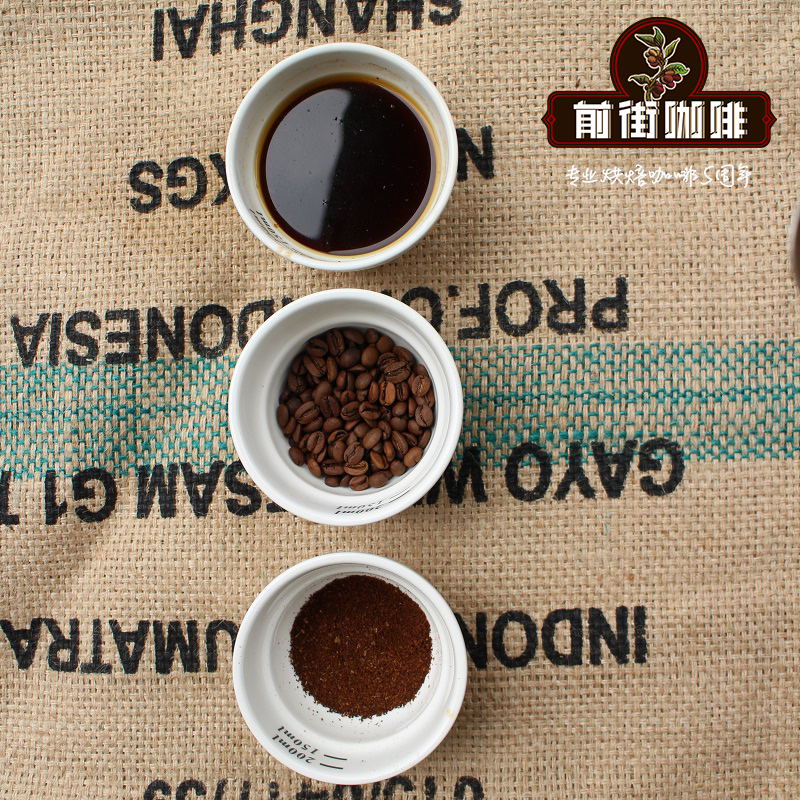Can cappuccino Yunnan small coffee be made? | how to make Yunnan small coffee latte?

Professional coffee knowledge exchange more coffee bean information please follow the coffee workshop (Wechat official account cafe_style)
Yunnan, as a major agricultural province in China, has a lot of local specialties (www.yntcb.com). The small specialties on Yunnan land are numerous. Today, what I want to introduce to you is coffee, a specialty that has nothing to do with Yunnan at first glance.
Yunnan small grain coffee has a long history, with the development of tourism in Yunnan, this unique small resource has gradually come into everyone's attention. There are many farms growing coffee beans in Yunnan, and the coffee garden in Baoshan is a typical one.
Lujiang Dam in Longyang District of Baoshan City, which is full of light and frost-free all the year round, is one of the typical subtropical dry and hot valleys in China. In the middle of winter, the coffee all over the mountains will be ripe and enter the picking season, and the red and green coffee beans are loaded with branches, which is particularly gratifying. Due to the influence of the geographical factors of Gaoligong Mountain, the small grains of coffee grown here absorb the essence of the sun and the moon all the year round, collect the aura of heaven and earth, and become famous for its high quality.
Small coffee beans in the mature stage
Baoshan small-grain coffee is the earliest product in line with the market and the international market. It has been rated as the best coffee in the world by world-class coffee experts for many years, but it has encountered bottlenecks in the process of development. As most of the primary processing of peeling and degumming is completed by the farmers themselves, it is difficult to unify the technology and quality standards, resulting in different quality of the newly processed coffee beans, thus affecting the price. To this end, some enterprises actively adjust the industrial structure, committed to take the boutique coffee route, the introduction of peeling and degumming all-in-one machine, greatly improve the initial processing level of coffee, but also get a larger market and profit space.
Small-grained coffee (Coffea arabica L.) small trees or large shrubs, 5-8 m tall; old branches gray-white, young branches glabrous. Leaves thinly leathery, ovate-lanceolate or lanceolate, both surfaces glabrous; petiole 8-15 mm long; stipules broadly triangular. Cymes several clustered in leaf axils, each inflorescence 2-5 flowers, without total pedicel or with very short involucral pedicel; flowers fragrant; calyx tube tubular; Corolla white, lobes often longer than Corolla tube; anthers protruding from Corolla tube; style 12-14 mm long, stigma 3-4 mm long. The berries are red when ripe, exocarp dura, mesocarp fleshy and sweet; seeds protruding abaxially, ventral flat, longitudinally grooved. The florescence is from March to April.
Native to Ethiopia or Arabian Peninsula. It is cultivated in Fujian, Taiwan, Guangdong, Hainan, Guangxi, Sichuan, Guizhou and Yunnan. This species is the most widely cultivated species in the genus Coffee. After processing, the coffee tastes mellow and contains low caffeine.
Yunnan coffee belongs to fine coffee, but it can also be used to make beans for espresso. If you want to use Yunnan coffee to make milk coffee, you need to mix beans with a balanced flavor.
END
Important Notice :
前街咖啡 FrontStreet Coffee has moved to new addredd:
FrontStreet Coffee Address: 315,Donghua East Road,GuangZhou
Tel:020 38364473
- Prev

What is the taste of Yunnan small-grain coffee | which Yunnan small-grain coffee tastes good and how does it taste?
Professional coffee knowledge exchange more coffee bean information please follow the coffee workshop (Wechat official account cafe_style) after 1886, a large number of British, French, American, Italian and German missionaries entered western Yunnan. In 1892, French missionary Tian Deneng came to Zhukula Village in Binchuan, Dali for missionary activities. The first coffee seed took root in Zhukula, and the Godfather Tian taught the local villagers.
- Next

Do you know what cappuccino coffee means? cappuccino coffee practice tutorial
For more information on coffee beans, please follow the coffee workshop (Wechat official account cafe_style) Cappuccino is an Italian coffee mixed with the same amount of Italian espresso and steamed milk. The color of the coffee is like a cappuccino monk covering a dark brown coat with a headscarf, hence the name caffeine. Traditional
Related
- Beginners will see the "Coffee pull flower" guide!
- What is the difference between ice blog purified milk and ordinary milk coffee?
- Why is the Philippines the largest producer of crops in Liberia?
- For coffee extraction, should the fine powder be retained?
- How does extracted espresso fill pressed powder? How much strength does it take to press the powder?
- How to make jasmine cold extract coffee? Is the jasmine + latte good?
- Will this little toy really make the coffee taste better? How does Lily Drip affect coffee extraction?
- Will the action of slapping the filter cup also affect coffee extraction?
- What's the difference between powder-to-water ratio and powder-to-liquid ratio?
- What is the Ethiopian local species? What does it have to do with Heirloom native species?

